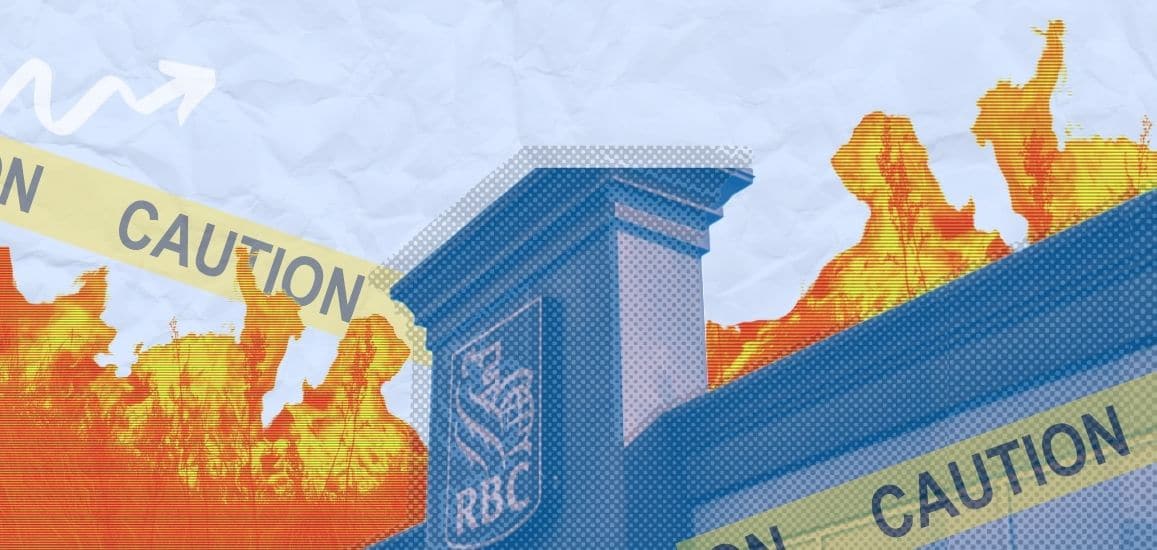Two Bad Fossil Banks as One – RBC tries to buy HSBC

RBC recently announced they intend to acquire the Canadian banking arm of HSBC Bank for $13B.
There was immediately push back from many corners of society, including numerous skeptical articles in the Globe and Mail about how this will limit competition and hurt consumers. The proposed deal still requires the approval of Canada’s banking regulator OSFI, the Competition Bureau (who are currently investigating RBC for greenwashing), and the Minister of Finance.
This is really bad news for the climate, because RBC is Canada’s #1 fossil bank, and HSBC is Europe’s. “A match made in greenwashing heaven” as one of our partners put it.
The National Observer reported:
A new front in the fight against climate change is emerging as Canada’s largest bank and top fossil fuel financier, RBC, plans to buy the Canadian arm of one of Europe’s top fossil fuel-financing banks, HSBC.
The planned acquisition would see two banks — both of which have faced serious accusations of greenwashing — combined. In October, Competition Bureau Canada opened an investigation into RBC for allegedly misleading Canadians about its climate performance. That same month, the United Kingdom’s Advertising Standards Authority found HSBC had misled consumers about how green it was in advertisements it put up a year ago.
Our partner Stand, working with environmental law firm Ecojustice, sent a letter opposing the merger to the Canadian regulators and politicians, urging them to reject this deal on competition and climate risk.
“Unfortunately, neither RBC nor HSBC has a credible plan for addressing climate change (a major systemic financial risk) and the misleading nature of their public climate commitments contrasted with their fossil fuel financing brings the integrity of their operations into question. Misleading consumers and making false climate promises while financing the primary driver of climate change is not in the best interests of Canadians or the financial system.
“Canada needs all economic actors to align with the goal of limiting warming to 1.5°C to reduce climate risks to the financial system and meet Canada’s domestic and international climate commitments. Greenwashing undermines the actions of institutions who are legitimately committed to and aligned with achieving net zero.”
Read the full letter on the Ecojustice website, and stay tuned for more as this story unfolds.
